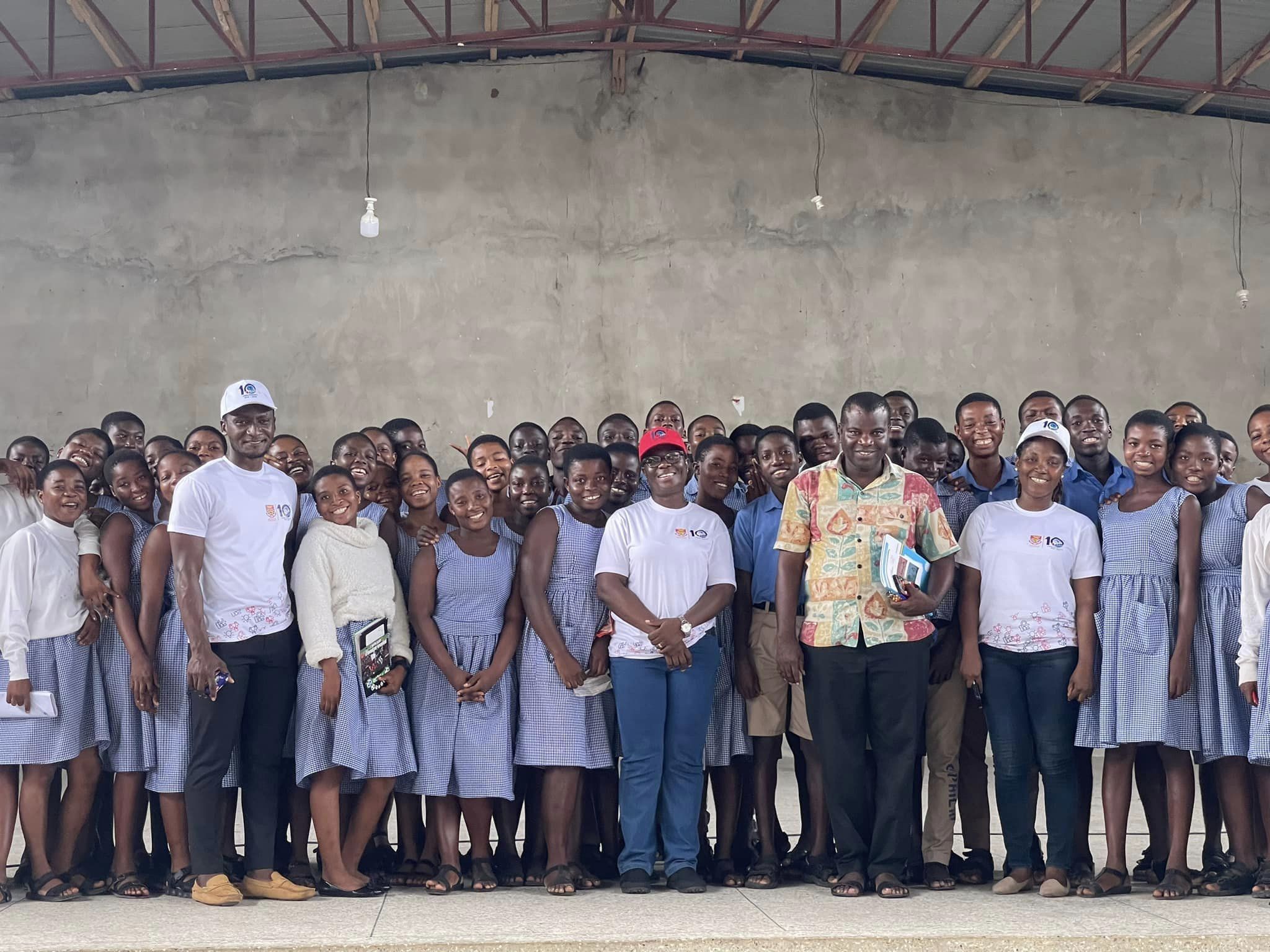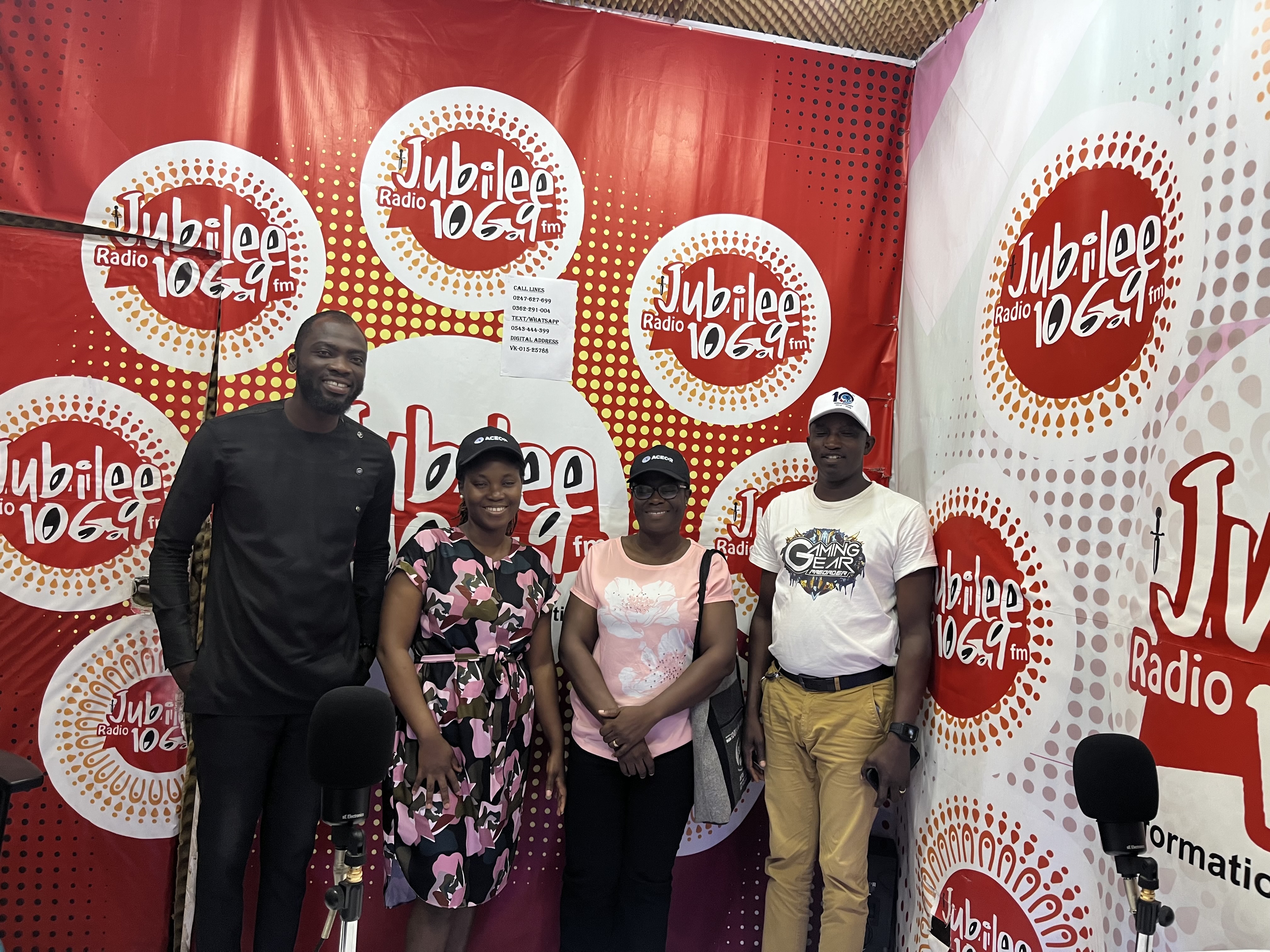Africa Centre of Excellence in Coastal Resilience |  University of Cape Coast
University of Cape Coast
Image

Posted On
Vendredi 14 juillet 2023 - 09:31
Corps
Biodiversity decline has been reported within coastal wetlands in Ghana, threatening the ability of these ecosystems to provide goods and services on which humanity depends. In an effort to address the consequences of excessive exploitation of biodiversity in the largest wetland in Ghana, located in the Anlo-Keta area, a team from the Centre for Coastal Management engaged in a 2-day activity to educate the general public and school children living around the KLCRS on how human activities impact biodiversity within the wetland. The purpose of this activity was to share knowledge derived from research undertaken within the Keta Lagoon Complex Ramsar Site (KLCRS) over a span of two years. This community engagement complements the collaboration between the Centre and the National Development Planning Commission (NDPC) to mainstream biodiversity in the KLCRS into the district's medium-term development plan for the years 2022 to 2025.
On Day 1, the team visited the Anlo Senior High School to interact with the students. The reason for including school children for dissemination of our research findings is to educate the younger generation to play more active roles in protecting the environment while serving as ambassadors of biodiversity within the Ramsar site. On the second day, the team engaged with the general public in a discussion on Jubilee Radio to discuss research findings and way forward. Listeners had the opportunity to phone-in to discuss pertinent matters regarding biodiversity in the lagoon.

The initiative is led by Dr. Margaret Fafa Akwetey as part of the KLCRS Biodiversity and Livelihood Project.
The research initiative, funded by the Global Development Network (GDN) and facilitated by ACECoR, conducted an assessment of the impacts of ecosystem-based livelihoods on biodiversity within the KLCRS. Specifically, the study covered birds, fish and vegetation within the wetland. Additionally, the study explored potential interventions aimed at mitigating the various factors that contribute to biodiversity loss, while also seeking to optimise the overall functioning of the socio-ecological system.
The study reveals several notable findings, one of which pertains to the avian biodiversity within KLCRS. A total of 132 bird species were recorded, three of which are classified as endangered. Concerns in the KLCRS include the deliberate hunting of bird species and the collection of their eggs.

Pertaining to fish species, ten were encountered with the tilapias being dominant. Interaction with fisher folks in addition to previous studies indicate that the species richness and diversity within the KLCRS have reduced. Also, the fishes caught within the wetland are now smaller in size compared to the past due to many factors. There were concerns over the potential leaching of agrochemicals from farmlands into wetland ecosystems, as well as the utilisation of small mesh gears and year-round fishing practises.
Regarding the vegetation, the study area encompasses a total of seventy-nine (79) plant species including two mangrove species. The primary issue associated with vegetation cover loss pertained to the clearing of vegetation for agricultural and residential purposes.
The study recommends sustainable exploitation of resources within the wetland by (1) avoiding the utilisation of illicit fishing techniques, (2) desisting from hunting of migratory birds and their eggs (3) ceasing the act of disposing waste materials into the lagoon. The students were encouraged to be ambassadors for biodiversity conservation by educating their families and communities at large on the importance of biodiversity for human survival.
The team expressed their profound gratitude to the Headmaster and his assistants, teachers and students of the Anlo Senior High School, Jubilee Radio and the general public for availing themselves for this outreach activity.
Dernière modification
